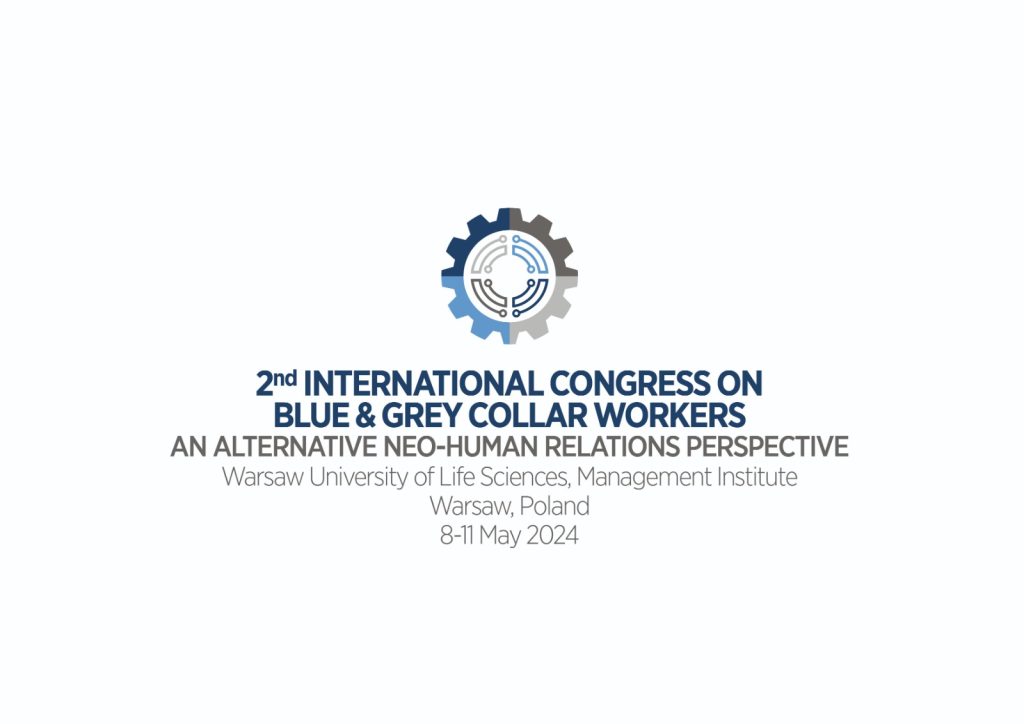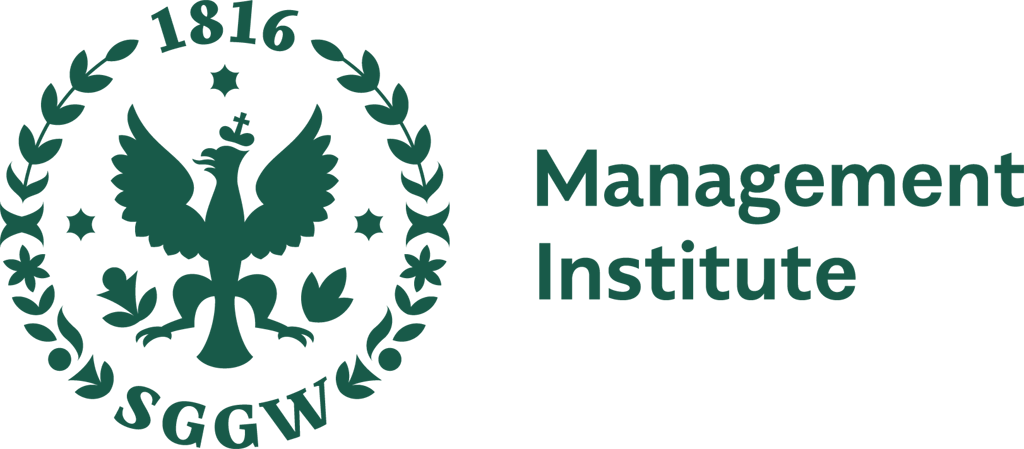
Dear Researchers,
We are honored to invite you to the “2nd International Congress on “Blue & Grey Collar Workers, An Alternative Neo-Human Relations Perspective”. The aim of the conference is to deepen and transfer knowledge about the impact of changes taking place in the global economy on the global workforce in terms of digitization of work processes and ways of interaction between employees of the so-called white, blue, and grey-collar workers. This conference will create an excellent platform for exchanging views on economic changes, bug management culture, the digitalization process on the labor market, and the very current topic related to artificial intelligence and machine learning in the organization, both in the environment of blue and grey-collar workers and white-collar workers.
Place of Congress: Warsaw, Poland
Organized by: Warsaw University of Life Sciences (Warsaw, Poland) and Başkent University (Ankara, Turkey)
Event date: May 8 – 11, 2024
Main topics of the congress:
- Digital transformation in the organization
- GIG Economy
- Error management
- Gender equality
- Post-pandemic management in the organization
- Identity constructions of employees
- Diversity and discrimination management
- Cybersecurity and privacy in organizations
- Artificial intelligence and machine learning in organizations
- Trust and intuition in management
- Information management systems at the workplace
- Knowledge management
- Motivation and engagement at the workplace
- The development of human resources
- CSR in the organization
KEY DATES
- Submission deadline for complete papers: March 1, 2024
- Reviews and responses to authors: March 15, 2024
- Submission of the final version of accepted papers or abstracts: March 31, 2024
- Early Bird Registration: until March 15, 2024
- Registration Deadline: March 30, 2024
The modern labor market must now find practical solutions to complex workplace challenges, formulated by both individual workers and coalitions of workers with communities that have chosen to influence industries and organizations with their collective power without the mediation of a mediator such as a trade union. Moving away from the mainstream research agenda of the Human Relations Movement, we feel the need to reconsider relationships in the workplace. That is why we are organizing this congress to offer the creation of an international Neo-Human Relations forum through which scientists, practitioners, and PhD students discuss insights and ideas about how interpersonal relations in organizations have changed in the digital era and what challenges and opportunities for organizations. Congress specifically focuses on what management skills or organizational practices are needed to deal with the collective power blue-collar workers can gain through social media advertising or community-supported measures.
The conference will also be an excellent place to discuss economic changes, which are gaining importance day by day as a new approach to the traditional structure of the workplace, both in the theoretical aspect and in terms of employee problems and offering solutions. Especially since the dynamics of these changes are difficult to predict in the current economic crisis. The conference will also address issues of bug management culture, including organizational practices related to communication, bug knowledge sharing, and rapid bug detection and handling. One of the leading topics of the conference will also be the digitization process and the combination of processes that will have a huge impact on the labor market, possibly causing mass unemployment of both blue and grey-collar workers and white-collar workers. A general problem to be addressed at the conference will also be the issue of poor leadership of blue and grey-collar workers, resulting in a lack of employee motivation, high levels of employee dissatisfaction, and high levels of turnover in the organizational environment. This conference will create an excellent platform for exchanging views on the very current topic related to artificial intelligence and machine learning in the organization, both in the environment of blue and grey-collar workers and white-collar workers. Thematic sessions as part of the conference will contribute to the popularization of scientific achievements, research and development work, and the promotion of science. It will also show the usefulness of scientific knowledge in everyday life. In addition, the congress is aimed at disseminating the traditions of the academic community. It will also be an element of promoting Warsaw and Poland in general as interesting places both in terms of science and tourism. The added value of the conference is that it will be organized in cooperation with scientists from the Warsaw University of Life Sciences, Poland, and Baskent University, Ankara, Turkey. Thus, the conference can be a perfect place to find international contacts, which in the future may result in extensive international research and scientific cooperation.
PARTICIPATION FEES
- 290 euro – early birds until March 15, 2024
- 320 euro – normal price after March 15, 2024
- 100 euro – student early birds until March 15, 2024
- 120 euro – student’s normal price after March 15, 2024
- 20 euro – online
A refund for participation in the conference will not be possible after April 17, 2024
Registration includes a conference information pack, a certificate of participation, digital proceedings, a pre-congress workshop for the PhD students, a gala dinner and participation in social events during the congress.
Registration does not include travel and accommodation costs. The cost of publishing in a paid journal is also the participant’s responsibility.
Bank Account Details
WARSAW UNIVERSITY OF LIFE SCIENCES – SGGW
ul. NOWOURSYNOWSKA 166
02-787 WARSZAWA
POLAND
PL5250007425
BANK PEKAO S.A. O/WARSZAWA
ul. NOWOURSYNOWSKA 166
02-787 WARSZAWA
POLAND
SWIFT CODE: PKOPPLPW
IBAN: PL 44 1240 6003 1111 0000 4945 5230
„Projekt dofinansowany ze środków budżetu państwa, przyznanych przez Ministra Nauki i Szkolnictwa Wyższego w ramach Programu „Doskonała nauka II”
“Project co-financed from state budget funds allocated by the Minister of Science and Higher Education under the Program “Doskonała Nauka II”

